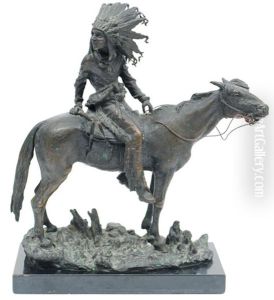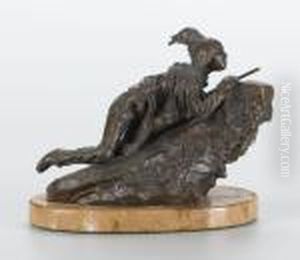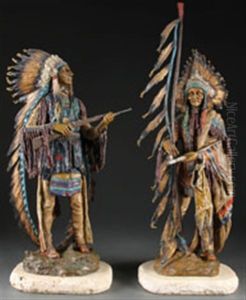Carl Kauba Paintings
Carl Kauba was an Austrian sculptor known for his detailed and often romanticized representations of Native American peoples, as well as figures from the American West. Born on August 13, 1865, in Vienna, Austria, Kauba developed his artistic skills at a time when the city was a vibrant center for the arts and culture.
Kauba's work was primarily in the medium of bronze, and he is celebrated for his ability to capture dynamic movement and intricate detail in his sculptures. His subjects ranged from Native American warriors and hunters to animals of the American West like bison and eagles. Despite the fact that he never visited the United States, Kauba was fascinated by the American West and studied it intensely through photographs, literature, and artifacts.
He received his artistic training at the Academy of Fine Arts in Vienna and was influenced by the works of other sculptors such as Carl Waschmann and Franz Bergman. Kauba's bronzes were often cast by the lost-wax process and are characterized by their fine craftsmanship and attention to detail.
Throughout his career, Kauba's work gained popularity with European and American collectors, particularly during the early 20th century. This popularity was in part due to the romantic and adventurous notions of the American frontier that were prevalent at the time. His sculptures were often small enough to be displayed in private homes, making them accessible to a wide audience.
Carl Kauba passed away on May 28, 1922, in Vienna. Today, his works are considered collectible and are part of various private collections and museums around the world. Kauba's artistic legacy lies in his ability to capture the spirit of the American West and its people, even though he experienced it from afar.


